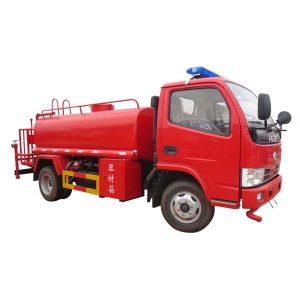Monday to Saturday - 8:00 -17:30
Dump Truck Weight
Understanding dump truck weight is essential for efficient operations and safety compliance. The weight of a dump truck can significantly impact its performance and legal restrictions.
Factors Affecting Dump Truck Weight
Several factors influence the dump truck weight, affecting its overall capabilities.
- Truck Size and Configuration
The size and configuration of a dump truck are primary factors determining its weight. Standard dump trucks typically weigh between 20,000 to 30,000 pounds (9,000 to 14,000 kg) when empty, while larger models like articulated or mining trucks can weigh significantly more. The design, including axle configurations and bed size, plays a crucial role in this.
Selecting the appropriate size and configuration is vital for meeting specific operational needs. A heavier truck may provide more stability and capacity but can also lead to increased fuel consumption and maintenance costs. Understanding these factors helps businesses choose the right truck, balancing weight, capacity, and efficiency for optimal performance.
- Material and Load
The type and amount of material carried affect the dump truck weight considerably. The weight of the load can vary widely based on the material’s density, such as gravel, sand, or soil. Properly assessing and balancing the load is crucial to ensure safety and compliance with weight regulations.
Overloading a dump truck can lead to mechanical issues and legal problems. Adhering to weight limits is essential for maintaining road safety and vehicle integrity. By understanding the material weight and distributing it evenly, businesses can optimize load capacity, ensuring efficient and safe transportation. This knowledge supports effective planning and execution of transport tasks.
Importance of Monitoring Weight
Monitoring dump truck weight is critical for operational efficiency and safety.
- Compliance with Regulations
Adhering to weight regulations is essential to avoid legal issues and fines. Each region has specific weight limits for vehicles, and exceeding these can lead to penalties. Understanding and monitoring the truck’s weight ensures compliance with these regulations, protecting the business from legal repercussions.
Compliance with weight limits also enhances road safety, preventing accidents caused by overloaded trucks. By prioritizing adherence to regulations, businesses can maintain a positive reputation and foster trust with clients and authorities. This focus on compliance supports sustainable operations and long-term success.
- Operational Efficiency
Monitoring dump truck weight contributes to operational efficiency by optimizing fuel consumption and reducing wear and tear on the vehicle. A properly loaded truck operates more efficiently, minimizing costs and maximizing productivity.
Efficient weight management reduces the strain on the truck’s engine and suspension, extending its lifespan and lowering maintenance expenses. By ensuring optimal load distribution, businesses can enhance performance and achieve cost savings. This strategic approach supports effective resource management and successful project execution.
Conclusion
In conclusion, understanding and monitoring dump truck weight is crucial for safety, compliance, and efficiency. By considering factors like truck size, configuration, and material load, businesses can optimize operations and ensure successful outcomes. This comprehensive understanding supports informed decision-making and enhances overall productivity.



